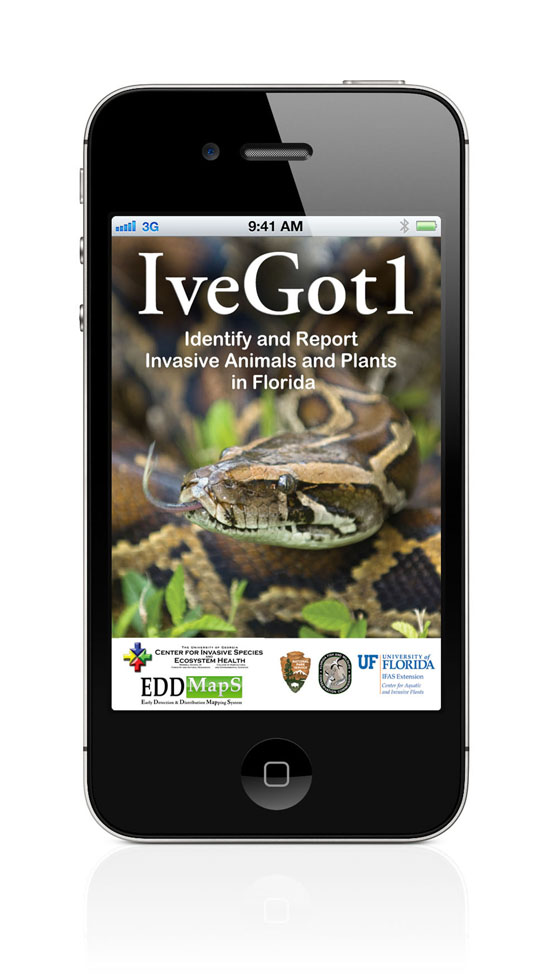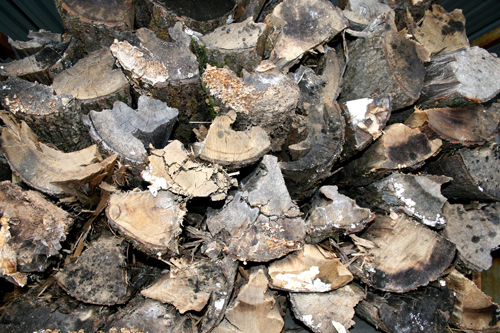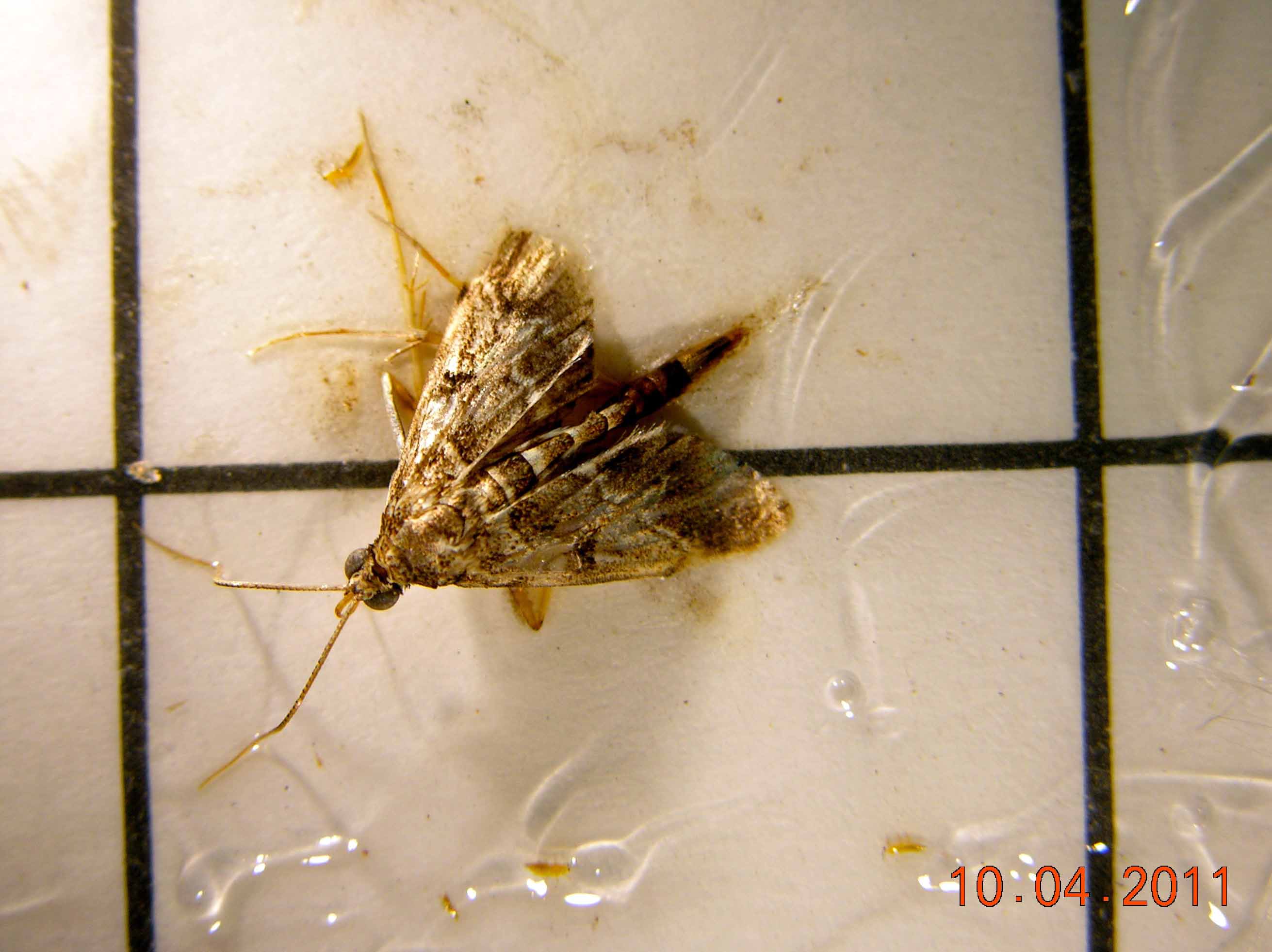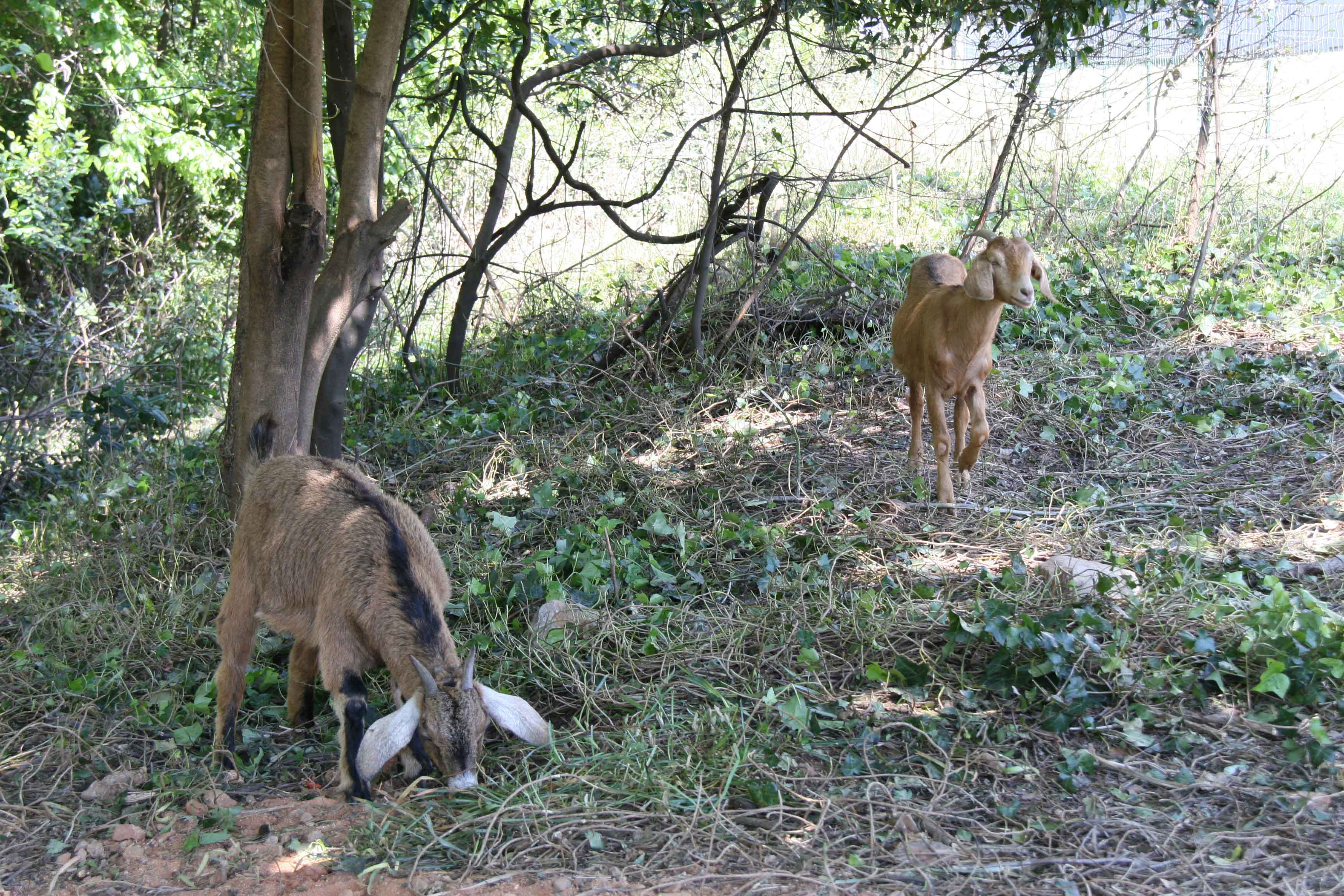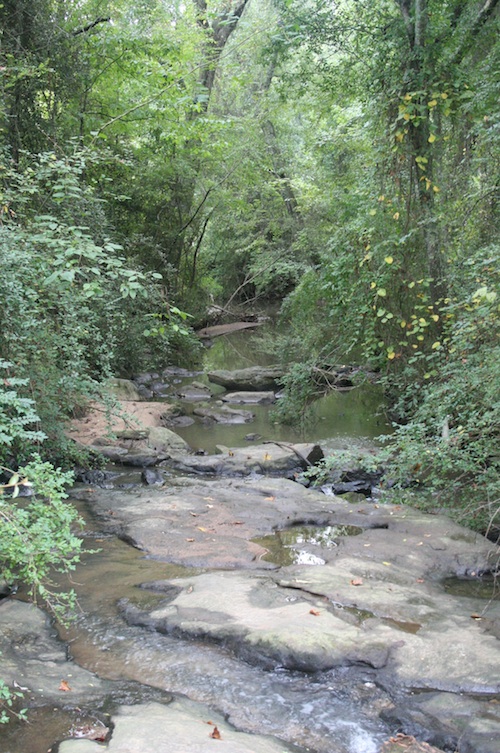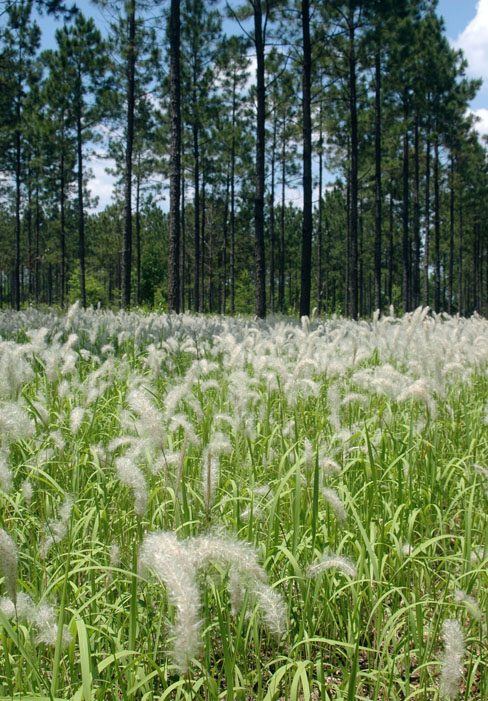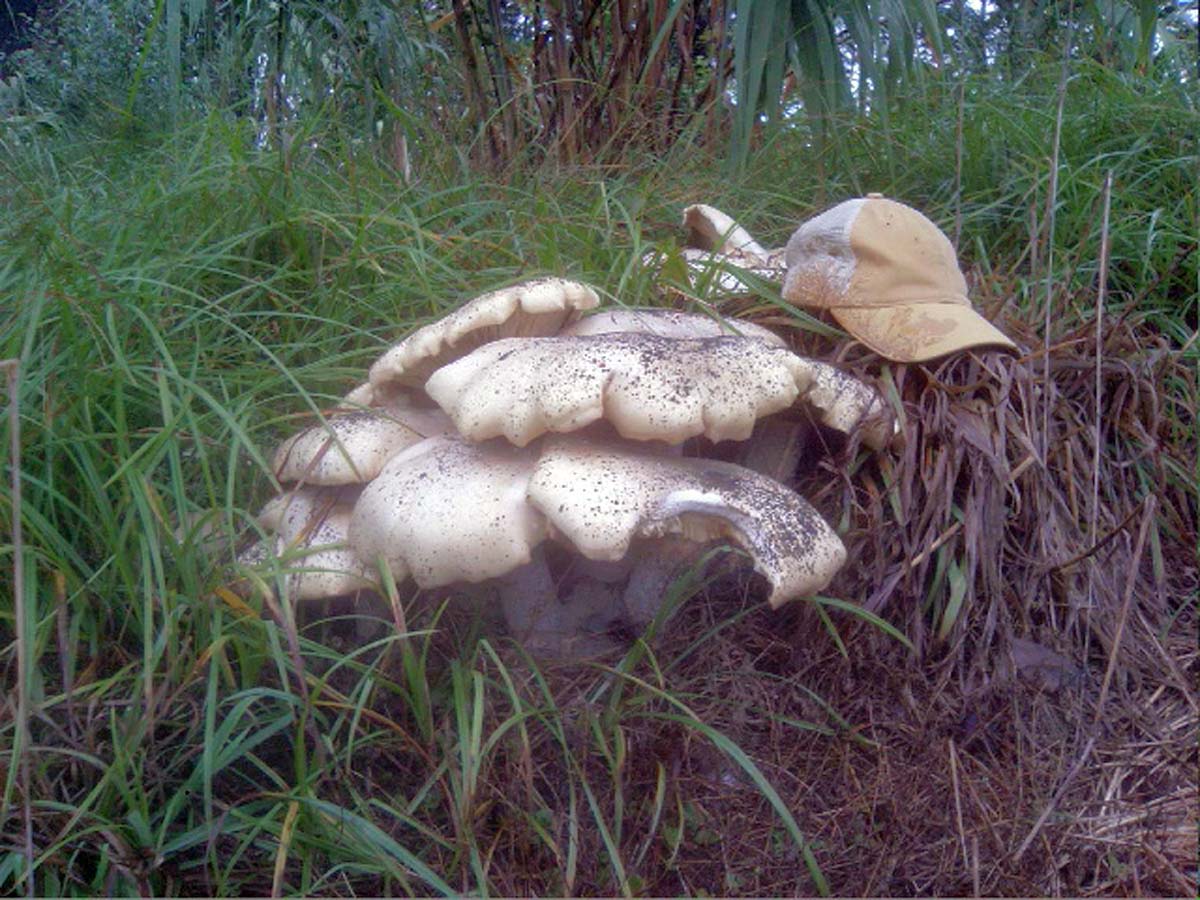 CAES News
CAES News
Giant Mushrooms
With mushroom caps that can be as large as trashcan lids, the gigantic fungus Macrocybe titans looks like something from outer space, but it may be popping up soon in a lawn near you.

